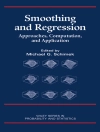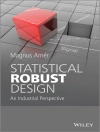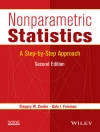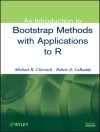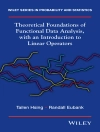The volume includes a collection of peer-reviewed contributions from among those presented at the FNE, the main conference organized every two years by the Mexican Statistical Society (AME), and the 2020 AME Virtual Meeting. Statistical research in Latin America is prolific and research networks span both within and outside the region. As much of the work is typically carried out and published in Spanish, a large portion of the interested public is denied access to interesting findings, and the goal of this volume is therefore to provide access to selected works from Mexican collaborators and their international research networks to a wider audience. It may be especially attractive to academics interested in the latest methodological advances, while professionals from other disciplines may also find value in these new tools for data analysis. In 2021, the conference broadly focused on the interdisciplinary aspects of Statistics.
Mục lục
A methodological proposal to model and evaluate the complexity of the Mexican geo-electoral system(Hernandez et al.).- A spatial analysis of drug dealing in Mexico City (Hernandez).- Bayesian Hierarchical Multinomial Modeling of the 2021 Mexican Election Outcomes with Censored Samples(Anzarut et al.).- Assessing hospitalization for SARS-Co V-2 confirmed cases by a cross-entropy weighted ensemble classifier(Barcenas et al.).- Emotion analysis to identify risk of committing suicide using statistical learning (Esparza et al.).-Characterizing groups using latent class mixed models: antiretroviral treatment adherence analysis (Fuentes-Garcıa et al.).- A dynamic model for analyzing the public health policy of the Mexican government during the COVID-19 pandemic (Guerrero-Flores et al.).- Social lag in the municipalities of the state of Guerrero, México (Guzmán-Martínez et al.).- Challenges in performing the Quick Counts of the National Electoral Institute in Mexico (Orantes-Jordan et al.).- Sampling design and poststratification to correct lack of information in bayesian quick counts (Perez-Perez et al.).- Maximum Likelihood Estimation for a Markov-Modulated Jump-Diffusion Model (Reynoso et al.).- Estimating the Composition of the Chamber of Deputies in the Quick Count for the 2021 Federal Election in Mexico (Rodr´ıguez).- Bayesian Analysis of Homicide Rates in Mexico from 2000 to 2012 (Sanchez-Casta neda et al.).







